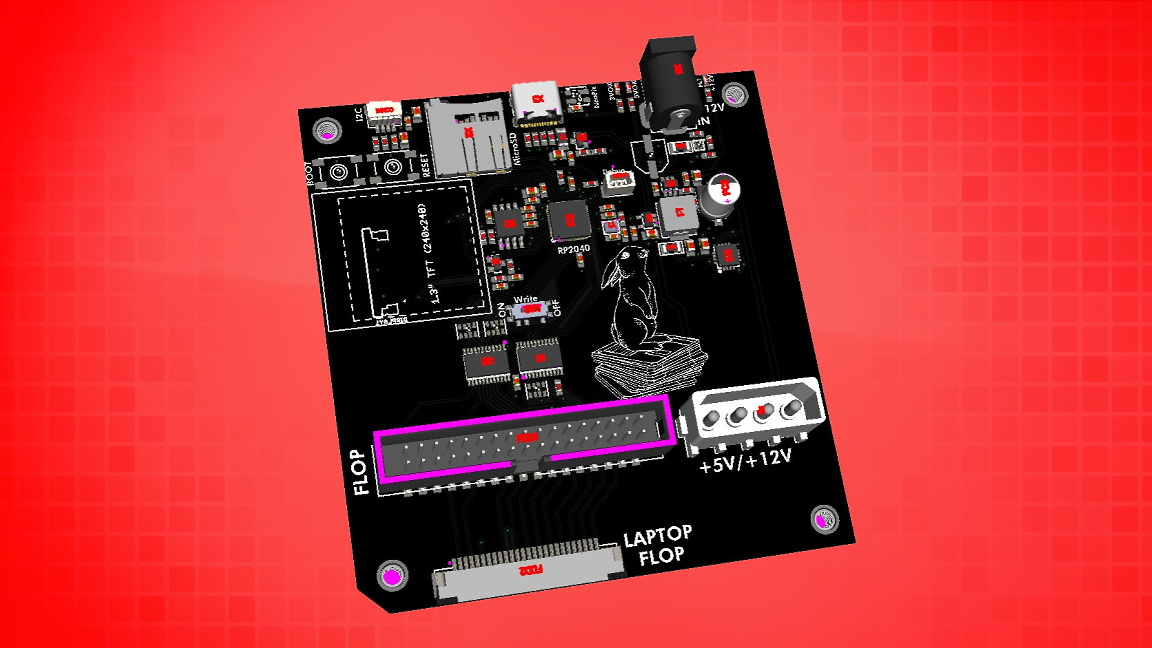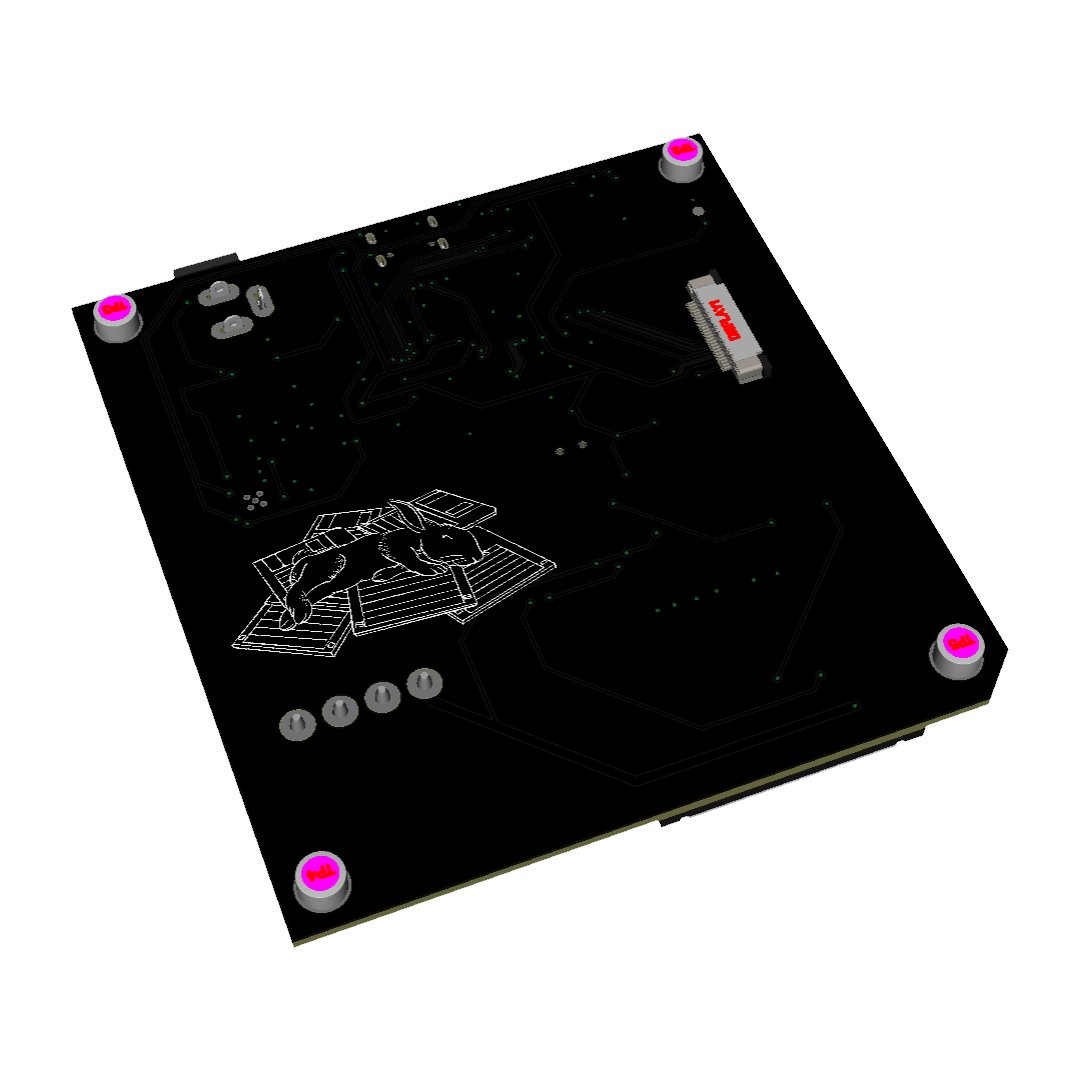Adafruit designs Raspberry Pi Pico RP2040 floppy drive emulator

Adafruit has designed a floppy drive PCB that uses an RP2040 with the ability to emulate a real floppy drive. This isn't the first time Adafruit has used a Raspberry Pi to dabble in the world of floppy disk support. Just over a year ago, the team programmed a Raspberry Pi Pico to read floppy disks. Now, they've taken the notion a step further and designed a Raspberry Pi RP2040 floppy drive PCB that allows users to archive, write, and emulate a real floppy drive.
It's also worth mentioning that Adafruit isn't alone in this endeavor. The "go-to" name in floppy emulation for many retro enthusiasts is Gotek, with a drive which can emulate a plethora of floppy disk formats. Over the years, we've covered a few other Raspberry Pi floppy projects, including this floppy disk adapter and another project that adds floppy drive support to your Pi. Over at X (formerly Twitter), Adafruit delved into what this new PCB offers. It has 16M onboard flash memory, but there's also room to add a microSD card. It even has a 1.3-inch color TFT display module to help keep track of task progress in real time.
The PCB requires juice to operate, and Adafruit seems to have planned for every contingency. It's powered by a 12V adapter alongside a 5V/3A buck converter. A TPS259540 12V OVP module is included to ensure the power is maintained at 12V and doesn't slip up to 15V. It also has optional USB-C support.

At the moment, the PCB features a 34-pin IDC pinout for interfacing. It also has support for 26-pin interfaces; however, the team mentioned the possibility of adding support for Disk II support in the future after some success when tinkering with an Apple disk.
Of course, no Adafruit board is complete without a cute theme, and this one is no exception. Adafruit took full advantage of the empty space left on the board and used a silkscreen printer to spruce up the final design with some artwork featuring a bunny rabbit. Is it critical for functionality? Of course not, but it looks so cute.
If you want to get a closer look at this PCB and see if it's worth using in one of your future Raspberry Pi projects, check out the official post shared to X (formerly Twitter) by Adafruit and follow them for future updates.
Get Tom's Hardware's best news and in-depth reviews, straight to your inbox.

Ash Hill is a contributing writer for Tom's Hardware with a wealth of experience in the hobby electronics, 3D printing and PCs. She manages the Pi projects of the month and much of our daily Raspberry Pi reporting while also finding the best coupons and deals on all tech.
-
edwardcrutchley5 Archiving floppy programs or porting them to newer operating systems are the most relevant ones that come to mind. Some people actually clean up and fix the old code, optimizing them with newer code.Reply -
edzieba Reply
There are plenty of devices that were built when 3.5" drives were the de-facto standard and are still in use today, e.g. lab equipment, mixing desks, digital signage systems, etc. These pieces of equipment are often too expensive to be replaced purely because you want shiny new stuff that does the same job, but the lack of newly manufactured 3.5" media and drives means they are becoming less and less maintainable and degradation of existing 3.5" media can risk loss of functionality. An FDD emulator means you can use newly manufactured interface hardware, commodity storage (e.g. SD cards), and keep media backed up with replication in the event of loss, damage or failure being trivial.Co BIY said:There must be some functional purpose that I am not imagining here ?
Plus, old PCs used as retro toys, I guess. -
Scootz_r "This isn't the first time Adafruit has used a Raspberry Pi to... "Reply
should be corrected to:
"This isn't the first time Adafruit has used a Raspberry Pi Pico to...
The Raspberry Pi Foundation did no one any favors when they decided to use identical product names for both the single-board computer, and the microcontroller. -
vancouverizer Reply
Other common devices include digital pianos, synthesizers, typewriters, and CNC machines.Co BIY said:There must be some functional purpose that I am not imagining here ?